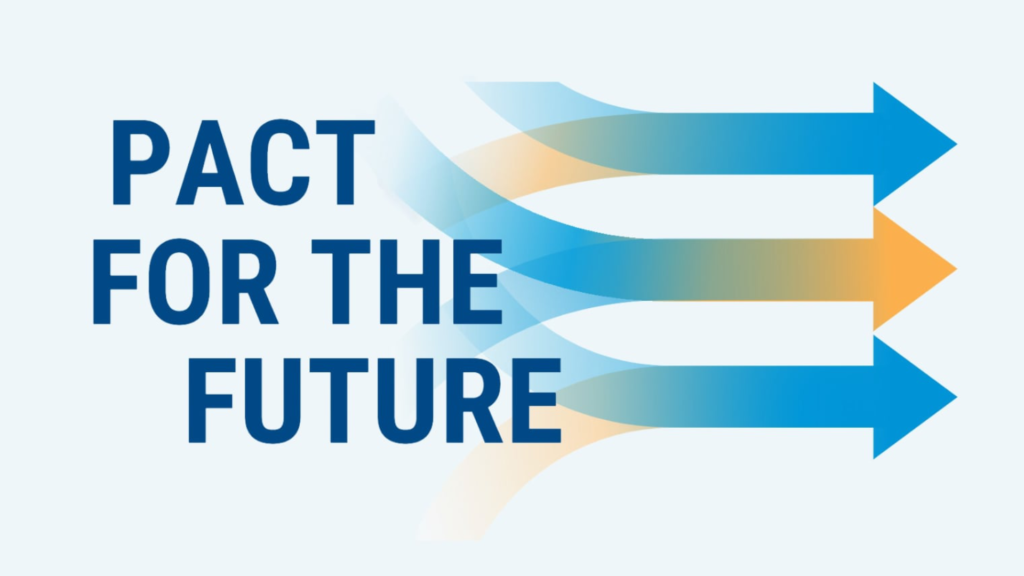The “Pact for the Future” is an ambitious initiative aimed at fostering global peace, promoting sustainability, and ensuring inclusivity in all spheres of human life. Spearheaded by the United Nations, this pact aligns with the goals of the 2030 Agenda for Sustainable Development, emphasizing international cooperation in addressing critical challenges like climate change, inequality, and conflict. This initiative calls for collaboration between governments, international organizations, civil society, and the private sector to build a more resilient, equitable, and peaceful global society.
This focuses on promoting global peace through diplomacy and multilateralism. With increasing geopolitical tensions, conflicts, and the proliferation of weapons, this initiative advocates for disarmament and conflict resolution through peaceful means. The UN, through its peacekeeping missions and specialized agencies, has committed to strengthening partnerships with regional organizations and member states to prevent conflicts, mediate disputes, and sustain peace in post-conflict regions. This approach echoes the UN’s longstanding tradition of promoting international security as a prerequisite for sustainable development.
Sustainability lies at the core of this initiative, particularly in the context of climate action. The pact highlights the need for nations to transition towards green economies, reduce greenhouse gas emissions, and protect biodiversity. Initiatives like the Paris Agreement on Climate Change and the Global Biodiversity Framework are closely aligned with the goals of this pact, urging countries to adopt sustainable development practices that mitigate environmental harm while ensuring economic growth.
The pact ensures inclusivity as a key principle so that no one can left behind in the global development agenda. It promotes gender equality, education, and equitable access to resources including emerging digital technologies to ensure data rights and protection. It emphasizes the importance of social protection programs, poverty eradication, and inclusive governance, that can ensure a strong voice and geopolitical commitment in shaping global policies for marginalized communities.
Despite its ambitious goals, several critical gaps such as non-binding provisions, lack of specific commitments, etc have been identified that may hinder its effectiveness in implementing immediate and long-term reforms globally. Addressing these gaps will be crucial for the Pact to achieve its vision of a sustainable, equitable, and cooperative future while tackling emerging risks for global communities.

